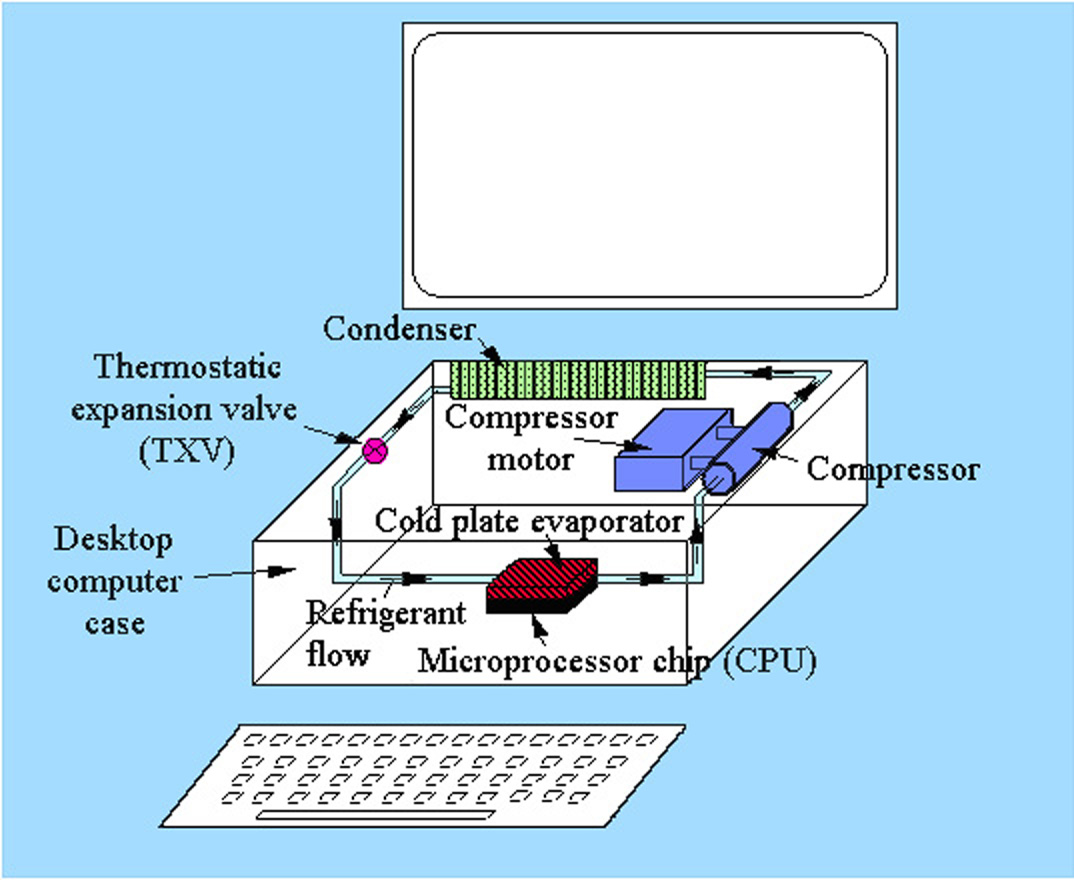A collaborative project involving Oxford, Newcastle and London South Bank Universities is being undertaken to develop a miniaturised refrigeration system for the cooling of computer chips. At present, computers mostly use heat sinks and fans to dissipate the heat generated by the main processor (i.e. CPU); however this technique is now reaching its limits. Future projections of the cooling needs of the electronics industry suggest that more efficient cooling methods will be needed, if computer CPU speeds are to continue to increase. Vapour compression refrigeration (VCR) systems are widely used for both domestic and industrial refrigeration, however, to date they have not been applied on a small scale, mainly due to the difficulties associated with miniaturising some of the essential components of refrigeration systems. In addition, it is known that for small-scale refrigeration systems, maintaining a steady mass flow rate for the refrigerant, and consequently a steady cooling temperature, is problematic. Developing a miniature refrigeration system that is small enough to fit inside a desktop or laptop computer case and provide the cooling power required e.g. of the order of 200-300W, represents a significant technical challenge.
The project has been divided into three distinct but interrelated areas that are being undertaken at the three universities by personnel with specialist skills and expertise in different areas. The overall aim is to build a prototype device that can be shown to meet the performance criteria required to cool the CPU (i.e. main microprocessor) for a desktop computer.
 | |